#plantation capitalism
Explore tagged Tumblr posts
Text
Indian tea production has been in severe crisis since the mid nineties largely due to neo-liberal structural adjustments in the Indian economy. The size of the tea industry, which is second only to China and accounts for 25 percent of global tea production, has made this a huge blow to the country’s agrarian economy. The industry employs 1.26 million people on tea plantations and two million additional people indirectly. As such, the economic crisis has had an enormous impact on the lives of local residents. In Kerala where I have been conducting research, there have been eight cases of suicide and twelve deaths due to starvation on tea plantations since 2001. Along with utter poverty and famine, tea plantation workers have faced increasingly unhygienic work environments, shattered social life/community relations, and withdrawal of the welfare measures previously enjoyed. The crisis punctured the isolated environments of the plantations and precipitated neoliberal reforms that closed down production in many areas either partially or completely. While many families remained on the plantations, large numbers of workers who had lived there for more than five generations were now compelled to seek work outside. Some went with their families to either their ancestral villages or regional industrial townships such as Coimbatore and Tirupur in Tamil Nadu. These plantation workers have now joined the ranks of the massive Dalit workforce powering India’s unorganised and informal sectors. In joining that pool of workers, Tamil Dalit labourers are exposed to aspects of a caste-ridden society from which they had previously been shielded. The situation of Saraswathi, a female retired worker in her early sixties, illustrates the dilemma and struggles of the workers who moved out the plantations.
— The hidden injuries of caste: south Indian tea workers and economic crisis by Jayaseelan Raj
#plantation tamils#kerala tea plantation#kerala#idukki#neocolonial india#neoliberalism#neoliberal india#plantation capitalism#plantation neoliberalism#tamil dalit workers#neoliberal casteism#jayseelan raj#tamil nadu#tamil labour migration
210 notes
·
View notes
Text
Is Any Game Worth Your Mind, Memory & Personality?

I asked myself a question today as the top NFC & AFC teams battle it out in their respective championship games today to ascend to the Super Bowl as I stopped watching football earlier this season after being a devoted Eagles & Bengals fanatic for over a decade:
What is the price of winning a Super Bowl?
Of that penultimate moment of glory & acclaim?
Of hoisting that prized Lombardi trophy?
Of being showered with confetti on the field after the game?
Of living out a boyhood dream?
A dream is earned & a dream has a price is what many football players would say in response.
But what is that price?
As I actually attended the Eagles championship parade at City Hall back in 2018 after they won the Super Bowl, I thought back to our 2017 roster – and I wanted to know where all those men were today?
After all, it was only seven years ago since that group of men ascended to the ultimate apex of their sport and claimed their rightful place in history as Super Bowl champions – so less than a decade later, where are all those men now?
As anyone who has watched ten seconds of football is aware, it is a hell of a lot of men on any NFL roster.
An average of 2,000 men suit up and play every single season. The sport is that brutalistic, violent, sadistic, merciless, pitiless and frankly speaking fucking insane.
Next man up, right?
So, where are all the men who won the Superbowl for the Eagles in 2018 today?
I wanted to look at the following for each man on the team:
Current age, Position played, length of NFL tenure, Current Player Status – 2025, NFL injury history & NCAA injury history.
What price did these men play to achieve the ultimate dream in American sports – to ascend to the top in the nation’s most watched & hypercompetitive, violent, militaristic sport to claim their victory as Super Bowl champions?
I can’t ask Tyler Sash this question, a safety who won the Super Bowl with the Giants in 2013, because he died at 27 in 2016 of a methadone & hydrocodone overdose with Stage II CTE which Dr. Ann McKee stated at the time is very rarely seen in someone as young as Tyler – for instance, it is approximately the same level of CTE that Junior Seau had when he committed suicide in 2013 at age 43.
I can’t ask Junior Seau that question either.
In fact, many of the sport’s greatest warriors, enshrined eternally in the sport’s Valhalla, the sport’s war memorial, the Hall of Fame cannot answer that question because many died prematurely and many died because of CTE.
The average age that an NFL player lives to be is 55 – twenty years younger than the average non-NFL player male who lives to be 75.
Is the price worth it?
Per the NFL’s own research, NFL players are nineteen times more likely to develop neurological conditions and disorders such as Parkinson’s disease, Alzheimer’s disease, ALS & dementia than non-NFL players.
Nineteen times!
Is the price worth it?
Let’s take a look at the price that one team paid – by looking at each individual player on the roster at the time – to ascend to the pinnacle of the sport and win a Super Bowl championship.
Less than ten years later – what price did these men pay?
As millions of Americans sit down today to watch the Eagles play the Commanders in the NFC championship this afternoon and as over 120 million Americans watched the Super Bowl last year and at least as many will be tuned in next month, it is worth it to ask and we owe these men to ask –
What price do they pay to play this game, our national sport obsession & religion – our cult of masculinity – and is it worth it?
Keep in mind, there are MANY more concussions that these players endure at ALL levels as evidenced by an article I wrote that was published on Advocacy for Fairness In Sports – as you will read, there are many, many undiagnosed concussions in the NFL and they are purposely undiagnosed as many of the “evaluations” as I notated in my article are disingenuous if they even happen at all for extremely obvious concussions symptoms such as temporary loss of consciousness, collapsing on the field, seizures, ataxia, etc.
Players are indoctrinated in this disgustingly violent & inhumane sport from the time they strap on their helmets and shoulder pads to lie about how they’re feeling – if I’m not in pain, then I’m not hurt.
If I hit him, then he didn’t hit me – right?
Is the price these men pay worth it?
Also, keep in mind – ALL of these men suffered serious injuries in high school including concussions and thousands of repetitive head impacts in the four years they played high school football – tackle football has the highest injury rate of any high school sport as well as the highest concussion rate among men.
Is the price these men pay worth it?
Also, keep one very important thing in mind – for most players, the neurological conditions & disorders such as CTE, Parkinson’s disease, Alzheimer’s disease, ALS & dementia literally caused by the sport of tackle football itself – as it is NOT the concussions that causes this disorders but instead the tens of thousands of subconcussive repetitive head impacts that these men endure throughout their playing careers – 336 head impacts per season in Pop Warner (youth tackle – ages 5 to 14), 600 to 1000 head impacts per season in high school football, 1000 head impacts per season in college football & 1000+ head impacts per season in college football – most men in the NFL start playing tackle as children, so that is a LOT of fucking hits to the head!
For most players, the neurological symptoms that accompany CTE, Parkinson’s disease, Alzheimer’s disease, ALS & dementia do not start to occur until 10 to 15 years after their playing careers are over – how convenient for the NFL as by that time, most of these men are hidden from the public’s view – out of sight, out of mind.
The symptoms are terrifying and often fatal – poor decision making, impulsivity, suicidality, aggression, violent tendencies, emotional outbursts, memory loss, confusion, emotional volatility, depression & insomnia which often leads to complete and total incapacitation and the inability to work.
The NFL’s own disability paperwork allows former players to file for disability benefits for dementia as early as 36 – is the price really worth it?
In other words, as you will see, some of the Eagles from the 2018 Super Bowl winning team are still playing in the league – and obviously, as it has only been seven years since they won the Super Bowl – so we are very far from the 10 to 15 years after retirement timer for former NFL players when neurological symptoms tend to occur – so as you ask yourself if the price is worth it, keep in mind that a decade from now, many of the men below may be suffering from CTE, Parkinson’s disease, Alzheimer’s disease, ALS & dementia.
Loss of memory, loss of personality, loss of identity, not knowing who they are as a person, not recognizing themselves in the mirror, not knowing who their soulmate, the love of their life is.
Like John Mackey, the Hall of Fame tight end from the Indianapolis Colts & first ever President of the NFLPA, not being able to recognize his own adult children in a picture that his wife showed him.
Is the price really worth it?
Not remembering their own teammates whom they forged such strong bonds of friendship & brotherhood with, who they shed blood, sweat & tears with.
Is the price really worth it?
Not even remembering the Super Bowl they played in and won.
Ask yourself if the price these men pay really worth it?
Some people play the game and don’t seem to pay the steepest, heaviest or highest price – the problem with that is, we don’t know who gets debilitated, incapacitated & disabled from the sport of football until it happens – and until there is a CTE test for living athletes, we won’t know what the prevalence of CTE is – but given the current research, it is possible that almost every single NFL player has some level of CTE.
Is the price these men pay worth it?
Being hit so hard you are knocked unconscious.
Having your leg broken from being upended by an opposing defensive back in frustration and then having the same defensive back slam your literal head to the ground while you are already lying prone with a fractured leg.
I thought the best way to demonstrate the price that all these men pay who play this game was to pull up the Eagles 2017 team roster & to select the first six players and examine their injury histories, where they are now & examine the price that they paid to play this game – at what cost did these men sacrifice themselves to earn the ultimate prize in their sport?
And what future price may be exacted from these men in 10 to 15 years?
Is there any price that is too high for the sport of football?
For glory? For immortality?
For a dream? The Price of Playing
Nelson Agholor
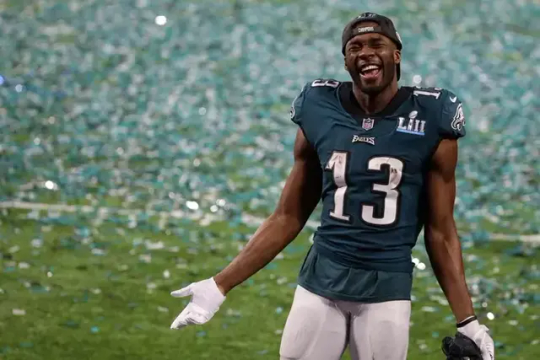
Today: 2025 – Seven years after the Super Bowl
Current Age: 31
Position: Wide receiver (NFL) & Wide receiver & returner (USC).
NFL Tenure: 5 seasons.
Current Status – 2025: Free agent.
NFL Injury History:
2024: Concussion.
2022: Hamstring injury.
2021: Concussion & ankle injury.
2019: Knee patella sprain.
2015: Finger dislocation.
2014: High ankle sprain.
NCAA Injury History:
2013: Rib injury.
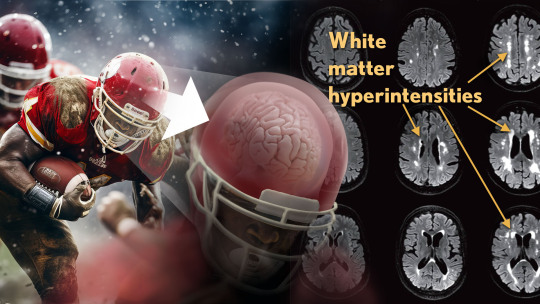
The Future: 10 to 15 years from now…
CTE diagnosis: Unknown
Parkinson’s disease diagnosis: Unknown
Alzheimer’s disease diagnosis: Unknown
ALS diagnosis: Unknown
Dementia diagnosis: Unknown
Loss of memory: Unknown
Loss of personality: Unknown
Loss of identity: Unknown
Unable to recognize soulmate & love of life? Unknown
Unable to recognize own children? Unknown
Unable to remember Super Bowl teammates? Unknown
Unable to remember winning Super Bowl? Unknown
Incapacitated & unable to work? Unknown
Early death at 55 or under? Unknown
Suicide? Unknown
Divorce? Alcohol, drug & opioid addictions? Houselessness? Unknown
Business failure? Bankruptcy? Unknown
Severe unrelenting physical pain that lasts for most of the day & night? Unknown
Severe insomnia & debilitating & crippling migraines & headaches? Unknown
Died alone? Unknown
Jay Ayaji
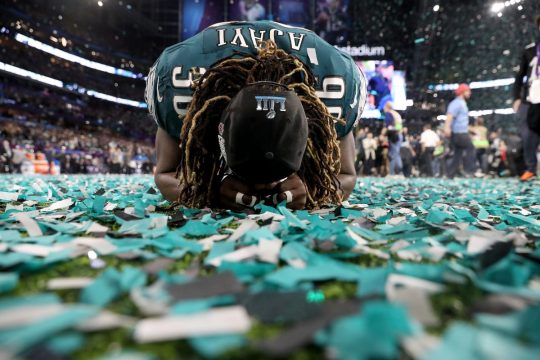
Today: 2025 – Seven years after the Super Bowl
Current Age: 31
Position: Running back (NFL & Boise State)
NFL Tenure: 7 seasons.
Current Status – 2025: Retired – 2022.
NFL Injury History:
2018: ACL tear & Back vertebral fracture.
2017: Concussion.
2016: Shoulder sprain.
2015: Fractured rib & hamstring injury.
NCAA Injury History:
2011: Torn ACL.
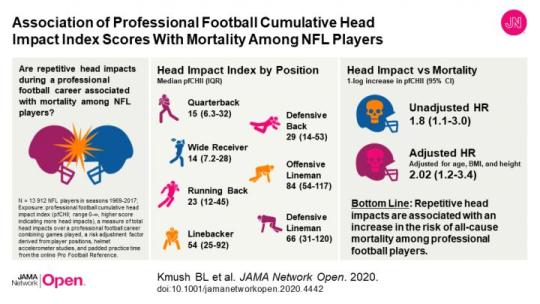
The Future: 10 to 15 years from now…
CTE diagnosis: Unknown
Parkinson’s disease diagnosis: Unknown
Alzheimer’s disease diagnosis: Unknown
ALS diagnosis: Unknown
Dementia diagnosis: Unknown
Loss of memory: Unknown
Loss of personality: Unknown
Loss of identity: Unknown
Unable to recognize soulmate & love of life? Unknown
Unable to recognize own children? Unknown
Unable to remember Super Bowl teammates? Unknown
Unable to remember winning Super Bowl? Unknown
Incapacitated & unable to work? Unknown
Early death at 55 or under? Unknown
Suicide? Unknown
Divorce? Alcohol, drug & opioid addictions? Houselessness? Unknown
Business failure? Bankruptcy? Unknown
Severe unrelenting physical pain that lasts for most of the day & night? Unknown
Severe insomnia & debilitating & crippling migraines & headaches? Unknown
Died alone? Unknown
Beau Allen

Today: 2025 – Seven years after the Super Bowl
Current Age: 33
Position: Nose tackle (NFL) & defensive tackle (University of Wisconsin).
NFL Tenure: 5 seasons.
Current Status – 2025: Free agent.
NFL Injury History:
2020: Stinger & leg injury.
2019: Ankle sprain & neck strain.
2018: Foot sprain.
2017: Ruptured pectoral muscle.
NCAA Injury History:
2013: Torn anterior talofibular ligament in ankle.
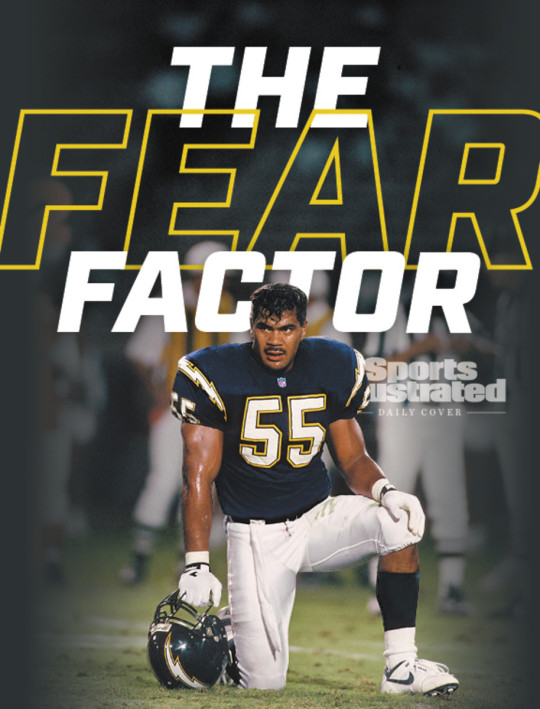
The Future: 10 to 15 years from now…
CTE diagnosis: Unknown
Parkinson’s disease diagnosis: Unknown
Alzheimer’s disease diagnosis: Unknown
ALS diagnosis: Unknown
Dementia diagnosis: Unknown
Loss of memory: Unknown
Loss of personality: Unknown
Loss of identity: Unknown
Unable to recognize soulmate & love of life? Unknown
Unable to recognize own children? Unknown
Unable to remember Super Bowl teammates? Unknown
Unable to remember winning Super Bowl? Unknown
Incapacitated & unable to work? Unknown
Early death at 55 or under? Unknown
Suicide? Unknown
Divorce? Alcohol, drug & opioid addictions? Houselessness? Unknown
Business failure? Bankruptcy? Unknown
Severe unrelenting physical pain that lasts for most of the day? Unknown
Severe insomnia & debilitating & crippling migraines & headaches? Unknown
Died alone? Unknown
Derek Barnett
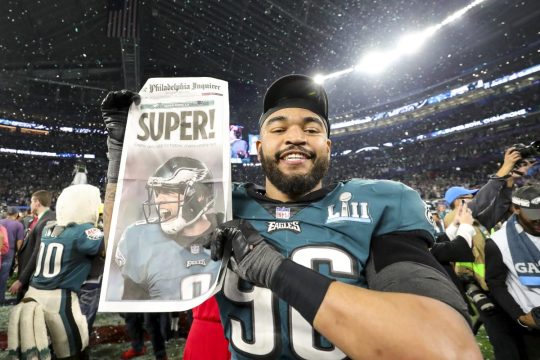
Today: 2025 – Seven years after the Super Bowl
Current Age: 28
Position: Defensive end (NFL & University of Tennessee)
NFL Tenure: 8 seasons.
Current Status – 2025: Active player – Houston Texans.
NFL Injury History:
2024: Shoulder injury.
2022: ACL tear.
2021: Neck & shoulder strain.
2020: Calf strain.
NCAA Injury History:
2017: Hamstring injury.

The Future: 10 to 15 years from now…
CTE diagnosis: Unknown
Parkinson’s disease diagnosis: Unknown
Alzheimer’s disease diagnosis: Unknown
ALS diagnosis: Unknown
Dementia diagnosis: Unknown
Loss of memory: Unknown
Loss of personality: Unknown
Loss of identity: Unknown
Unable to recognize soulmate & love of life? Unknown
Unable to recognize own children? Unknown
Unable to remember Super Bowl teammates? Unknown
Unable to remember winning Super Bowl? Unknown
Incapacitated & unable to work? Unknown
Early death at 55 or under? Unknown
Suicide? Unknown
Divorce? Alcohol, drug & opioid addictions? Houselessness? Unknown
Business failure? Bankruptcy? Unknown
Severe unrelenting physical pain that lasts for most of the day? Unknown
Severe insomnia & debilitating & crippling migraines & headaches? Unknown
Died alone? Unknown
Will Beatty
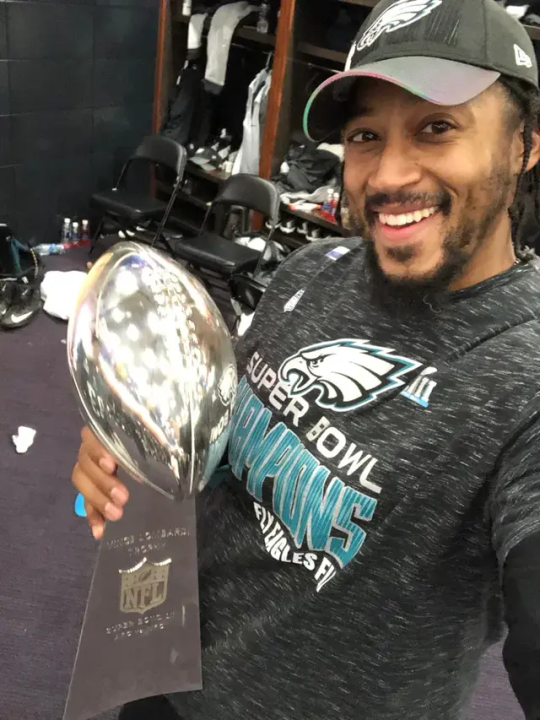
Today: 2025 – Seven years after the Super Bowl
Current Age: 39
Position: Left tackle (NFL & UConn)
NFL Tenure: 8 seasons.
Current Status – 2025: Retired – 2017.
NFL Injury History:
2015: Torn pectoral muscle & torn rotator cuff.
2013: Broken leg – “Beatty broke his leg in the final game of the season vs the Washington Redskins, when DeAngelo Hall upended Beatty in frustration. Hall was fined $7,875 for slamming Beatty's head into the ground while Beatty laid on the ground with a fractured leg. Hall wasn’t ejected or even flagged for his completely unnecessary actions during the game but the NFL decided to give him a slap on the wrist.”
2011: Nerve injury – disrupted sciatic nerve (back).
2011: Detached retina.
2010: Foot injury.
NCAA Injury History:
2006: Broken leg.
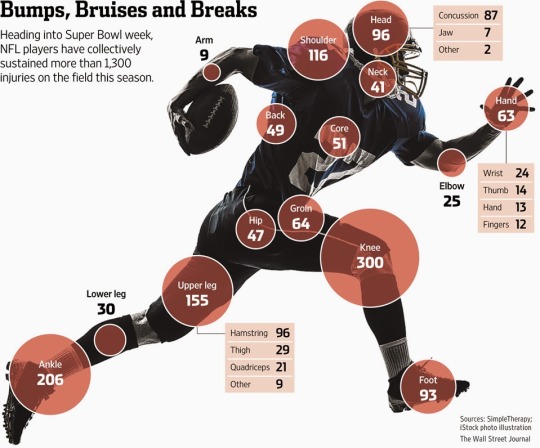
The Future: 10 to 15 years from now…
CTE diagnosis: Unknown
Parkinson’s disease diagnosis: Unknown
Alzheimer’s disease diagnosis: Unknown
ALS diagnosis: Unknown
Dementia diagnosis: Unknown
Loss of memory: Unknown
Loss of personality: Unknown
Loss of identity: Unknown
Unable to recognize soulmate & love of life? Unknown
Unable to recognize own children? Unknown
Unable to remember Super Bowl teammates? Unknown
Unable to remember winning Super Bowl? Unknown
Incapacitated & unable to work? Unknown
Early death at 55? Unknown
Suicide? Unknown
Divorce? Alcohol, drug & opioid addictions? Houselessness? Unknown
Business failure? Bankruptcy? Unknown
Severe unrelenting physical pain that lasts for most of the day? Unknown
Severe insomnia & debilitating & crippling migraines & headaches? Unknown
Died alone? Unknown
LeGarette Blount

Today: 2025 – Seven years after the Super Bowl
Current Age: 38
Position: Running back (NFL & UConn)
NFL Tenure: 8 seasons.
Current Status – 2025: Retired – 2018.
NFL Injury History:
2016: Hip strain.
2015: Hip strain.
2014: Shoulder sprain.
2012: Neck strain.
NCAA Injury History:
2006: Broken leg.
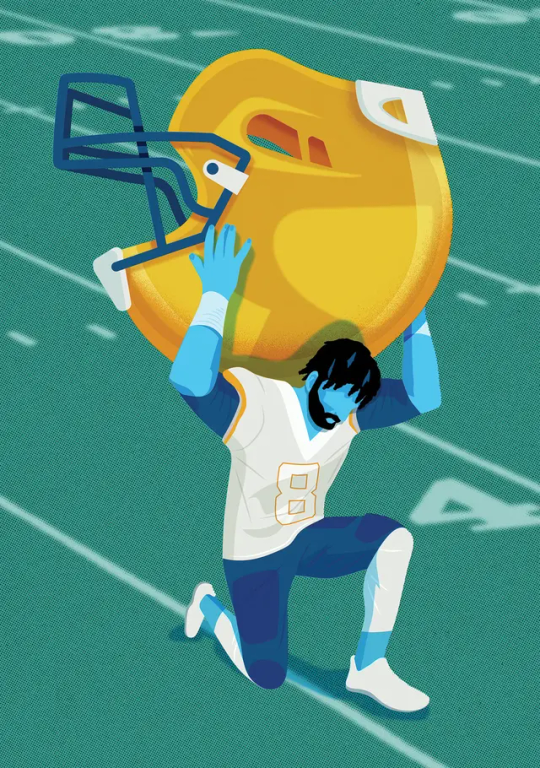
The Future: 10 to 15 years from now…
CTE diagnosis: Unknown
Parkinson’s disease diagnosis: Unknown
Alzheimer’s disease diagnosis: Unknown
ALS diagnosis: Unknown
Dementia diagnosis: Unknown
Loss of memory: Unknown
Loss of personality: Unknown
Loss of identity: Unknown
Unable to recognize soulmate & love of life? Unknown
Unable to recognize own children? Unknown
Unable to remember Super Bowl teammates? Unknown
Unable to remember winning Super Bowl? Unknown
Incapacitated & unable to work? Unknown
Early death at 55 or under? Unknown
Suicide? Unknown
Divorce? Alcohol, drug & opioid addictions? Houselessness? Unknown
Business failure? Bankruptcy? Unknown
Severe unrelenting physical pain that lasts for most of the day? Unknown
Severe insomnia & debilitating & crippling migraines & headaches? Unknown
Died alone? Unknown
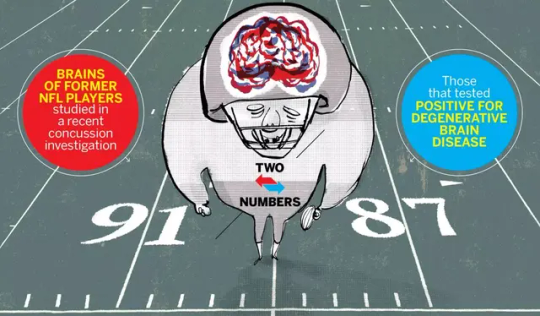
What did you notice from the above?
None of the six players that I included above as a representative sample of the 2017 Eagles Super Bowl winning roster escaped from their college playing days or NFL playing days unscathed.
Broken bones. Torn muscles. Concussions. Loss of consciousness. Torn ACLs. High ankle sprains. Shoulder sprains. Surgeries.
There isn’t one college football game – not one! – that goes by without at least one player, and oftentimes many more, being seriously injured.
Ofcourse, this is also true of the NFL as well.
So, those are the injuries these men endured in college & in the NFL and some of them are still actively playing in the league today, some are free agents, some retired recently and some retired years ago.
You know what else they all have in common other than enduring the inhumane brutalistic violence inherent & foundational to the game of tackle football?
As you can see above, right now, I have “Unknown” for all six players' future status in terms of developing neurological symptoms of cognitive disorders & conditions such as CTE, Parkinson’s disease, Alzheimer’s disease, ALS & dementia which are literally caused by repetitive subconcussive head impacts not concussions – the hits that occur on every single solitary blocking & tackling play in tackle football – that tend to surface 10 to 15 years after a player has stopped playing football.
How many of the above six players will have CTE?
Parkinson’s?
ALS?
Dementia?
Frontotemporal Dementia or FTD like Hall of Fame Indianapolis Colts running back & first ever President of the NFLPA John Mackey that couldn't recognize pictures of his own adult children when shown by his wife & college sweetheart Sylvia Mackey who ended up dying from dementia in an assisted living facility?
Alzheimer’s?
How many will lose their memory?
Their personality?
Their identity?
Their sense of self?
Their ability to be independent, to drive & to work?
To own & run a business?
To speak, swallow & breathe without difficulty as happened to Earl Morrall, the most famous backup quarterback in NFL history who famously filled in for an injured Bob Griese during the Dolphins never repeated perfect 1972 season which culminated in a Super Bowl win, who died completely physically incapacitated with the most advanced form of CTE, Stage IV as well as Parkinson's disease?
To recognize their soulmates & loves of their lives?
Their high school & college sweethearts?
Their own children?
Their former teammates?
Their former coach?
Will they remember winning the Super Bowl?
Will they even remember playing in the Super Bowl?
How many will be suicidal, depressed, alcoholic, drug addicted, opioid abusing, binge eating, addicted to sleeping pills, suffering from constant migraines, ringing in the ears, sensitivity to light & noise, non-stop pounding in the head, insomnia, aggression, volatility, impulsivity, impaired decision making, confusion, violent tendencies, emotional outbursts, reckless behavior, addicted to illicit drugs, antidepressants, benzodiazepines?
How many of the above six men?
How many of the 2017 Eagles team that won the Super Bowl?
How many of the players in the league that suited up in the 2017 to 2018 season?
Is any game worth the price these men risk paying?
Is any game truly worth your mind, memory & personality?
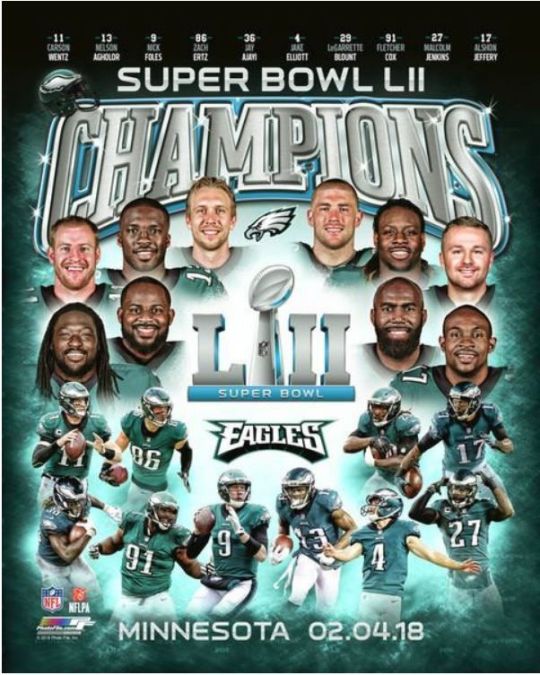
#nfl#nfl football#nfl players#nfc championship#afc championship#eagles#kansas city chiefs#kc chiefs#philadelphia eagles#super bowl#football#american football#college football#ncaa football#cfp championship#cfp#neurological disorder#concussion#anti capitalism#modern day slavery#traumatic brain injury#head injury#brain injury#exploitation#plantation capitalism
1 note
·
View note
Text

#plantation#class war#burning#calming sounds#sounds#relaxing#study#fire#asmr sounds#asmr video#asmr#ausgov#politas#auspol#tasgov#taspol#australia#fuck neoliberals#neoliberal capitalism#anthony albanese#albanese government
35 notes
·
View notes
Text










Go go man-made horrors beyond comprehension!
(Pt.1)
#united front#meme#anticapitalism#communism#socialism#imperialism#capitalism#free palestine#memes#anti imperialism#antifascism#free sudan#free congo#free yemen#nottoway plantation#the white house#donald trump#joe biden#genocide joe#liberals#democrats#democratic party#tariffs#communoty memes#china#south africa#immigration
18 notes
·
View notes
Text
[sebastian] melmoth the wanderer v abramelin the mage
#yn.#and louis& claudia unnamed entirely — incestuous creoles harking back to slavery#vs louis dropping ‘de pointe’ in his name … eschewing the plantation for modern venture capitalism in dubai lol
8 notes
·
View notes
Text
A Crash Course to Kendrick's Super Bowl Performance, from a Black Woman
Note: this does NOT go in depth into all of the song's lyrics. I don't have time to recount two decades of his discography. This is just a summary of the performance itself.
Let's start with the first visual we get:
UNCLE SAM - most notably recognized from WWII American wartime propaganda, Uncle Sam is the personification of American patriotism and freedom. The term "uncle" is also evocative of Uncle Tom from Uncle Tom's Cabin, an abolitionist book that aided in inciting the Civil War. Uncle is also a very common term (both endearment and derogatory) towards Black men (eg. "unc"). Samuel L Jackson was fantastic. (Edit: and please look up his history of civil rights activism, he was on the FBI watchlist and even a pallbearer at MLKJr’s funeral.)
Uncle Sam also resembles a circus ringleader, notable for my next point:
THE GREAT AMERICAN GAME - no, not Super Bowl. The GAG is us the people being pitted against each other: through late-stage capitalism, through the culture war, through class warfare, through being built of the backs of slaves. We are all players in the GAG because none of us on this site were the oligarchs seated at the inauguration.
This is also seen as Kendrick's stage was a Play Station controller. Not only did it remind of circus rings visually, but it was a game battle stage. The Great American Game is a battle royale of the commoners for the amusement of the rich whites.
Remember the foods / Them color was tin and brown / But now they 100 and blue - For this I'll just say, look what the last election said about lowering the price of eggs... and look at the prices now.
The revolution about to be televised / You picked the right time / But the wrong guy - Election 2024 once more. *Edit to add, the first part of this lyric is in reference to the Black Liberation Song "The Revolution Will Not Be Televised" by Gil Scott-Heron. Thanks to everyone who mentioned that.
THE FLAG DANCERS - yes, the dancers formed the US flag... off of the backs of Black people. Not a single white person in sight, and that's true of the cotton pickers in the fields. Plantations are part of how the US came to economic prominence after being a "backwater" colony. Remember tobacco? Cotton? Our bloodlines do. *Edit to add: they also all piled out of a clown car. The US flag in a clown car? Brilliant.
The red and blue dancers are also notable for representing the Crips and Bloods, two infamous street gangs. The dance in Not Like Us is the Crip Walk. I recommend researching more on your own time about them, but just know they are a large part of the stereotype of Black people being "ghetto."
TOO LOUD, TOO RECKLESS, TOO GHETTO. Do you really know how to play the game? - This is exactly what Black people, especially Black men, get told all the time. It's why we change our names on resumes if they sound "too Black." It's why we codeswitch in non-Black company. This is especially rich considering how non-Black people love our culture and love to make money off of us, as the latter part of the quote points to. And it's even more profound during the Super Bowl-- the NFL is majority Black players.
STREET LIGHT A CAPELLA -- "thug" stereotype dancers to counteract the a capella connotations, with Uncle Sam then saying that Kendrick figured out "bringing other street guys around being a culture cheat code." Yes, this is a direct hit at Drake (listen to "Not Like Us") but also politically. Look up "model minority". Notably I would point to Candace Owens, or the Miami Venezuelan political group that's been in the news recently, especially as this directly led to Kendrick being surrounded by...
DANCERS IN WHITE -- it's white America. That's... that's the allegory.
NOT LIKE US TEASER -- Kendrick says "Not Like Us" is "their favorite song." -> he means white people specifically here. It comes after he's surrounded by all white dancers, the women around him who are his call and response are also in white (my opinion, they represent the industry). He's saying "Not Like Us" is the favorite of yts because it is about BLACK MEN FIGHTING. This again is reflected in the video game stage and ringleader Uncle Sam.
SZA -- instead of giving what they want, we see SZA. She's one of Drake's exes and Kendrick has always supported her.
ALL THE STARS -- This was in the first Black Panther movie, which I recommend you watch. Rest in Power Chadwick. Notably, this movie was incredibly mainstream as a major Marvel movie, and then we have Uncle Sam say...
"THAT'S WHAT AMERICA WANTS: NICE AND CALM. DON'T MESS THIS UP" -- translation: Marvel (the industry, America, etc.) wanted a safe, semi-pop song because white American likes safe pop songs, not Kendrick's usual heavy rap style about his life as a Black man! Don't mess up what you've got going mainstream for having this "Black rap feud" with Drake, who is an R&B model minority to white people because he's safe.
So what does Kendrick say?
IT'S A CULTURAL DIVIDE / IMMA GET IT ON THE FLOOR -- He was warned not to be political or apologetically Black for this Super Bowl performance, but he is using this big stage opportunity to speak out.
40 ACRES AND A MULE / THIS IS BIGGER THAN THE MUSIC -- 40 acres and a mule are what the freed slaves were promised. Instead, this land went to white sharecroppers. Research Jim Crow laws.
THEY TRIED TO RIG THE GAME / BUT YOU CAN'T FAKE INFLUENCE -- rig the election, rig the industry like with model minority Drake, rig the Great American Game with culture war to distract from active class warfare.
NOT LIKE US -- the only thing I'll mention because it made me holler is Serena Williams crip walking on Drake's metaphorical grave. She's another one of his exes (read: Drake harassed the hell out of her). *Edit: she was also fined at the 2012 Olympics for crip walking in celebration at Wimbledon.
TURN THE TV OFF -- exactly like he said! The TV is a distraction, the Super Bowl is a distraction, the mainstream news is often a distraction. Turn it off and get with your people!
GAME OVER — could not see this on my stream but at the end of the performance, the lights in the stadium spelled this out. The world is watching, America…
In conclusion, Kendrick Lamar is a visionary and thank you for coming to my TED Talk.
#kendrick lamar#super bowl#immigration#tea time with hawk#samuel l jackson#mcu#sza#kdot#not like us#black history month
47K notes
·
View notes
Text










#east providence#401#east bay#eastbay#eastprovidence#eastprovidenceri#providence#providenceri#rhodeisland#rhodeislandlife#pvd#provcity#prov#eastprov#rhodie#rhodies#homestate#creative capital#rhodeislandri#RI#bay state#ocean state#oceanic plantation#rhode island#rhode islander#providencelife#providencephotographer#providenceartists#providenceartist
0 notes
Text
The local population in countries that export bananas typically eat different varieties grown primarily by small farmers. The ones for the Americans and the Europeans, Cavendish variety bananas, are grown in huge, monoculture plantations that are susceptible to disease. The banana industry consumes more agrichemicals than any other in the world, asides from cotton. Most plantations will spend more on pesticides than on wages. Pesticides are sprayed by plane, 85% of which does not land on the bananas and instead lands on the homes of workers in the surrounding area and seeps into the groundwater. The results are cancers, stillbirths, and dead rivers.
The supermarkets dominate the banana trade and force the price of bananas down. Plantations resolve this issue by intensifying and degrading working conditions. Banana workers will work for up to 14 hours a day in tropical heat, without overtime pay, for 6 days a week. Their wages will not cover their cost of housing, food, and education for their children. On most plantations independent trade unions are, of course, suppressed. Contracts are insecure, or workers are hired through intermediaries, and troublemakers are not invited back.
Who benefits most from this arrangement? The export value of bananas is worth $8bn - the retail value of these bananas is worth $25bn. Here's a breakdown of who gets what from the sale of banana in the EU.
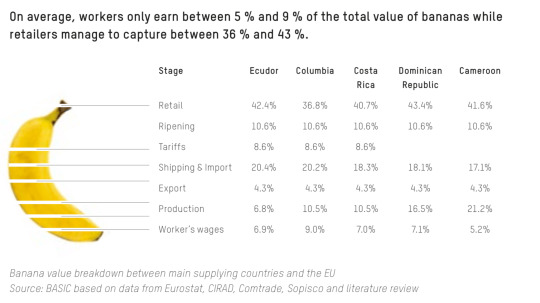
On average, the banana workers get between 5 and 9% of the total value, while the retailers capture between 36 to 43% of the value. So if you got a bunch of bananas at Tesco (the majority of UK bananas come from Costa Rica) for 95p, 6.65p would go to the banana workers, and 38p would go to Tesco.
Furthermore, when it comes to calculating a country's GDP (the total sum of the value of economic activity going on in a country, which is used to measure how rich or poor a country is, how fast its economy is 'growing' and therefore how valuable their currency is on the world market, how valuable its government bonds, its claim on resources internationally…etc), the worker wages, production, export numbers count towards the country producing the banana, while retail, ripening, tariffs, and shipping & import will count towards the importing country. A country like Costa Rica will participate has to participate in this arrangement as it needs ‘hard’ (i.e. Western) currencies in order to import essential commodities on the world market.
So for the example above of a bunch of Costa Rican bananas sold in a UK supermarket, 20.7p will be added to Costa Rica’s GDP while 74.3p will be added to the UK’s GDP. Therefore, the consumption of a banana in the UK will add more to the UK’s wealth than growing it will to Costa Rica’s. The same holds for Bangladeshi t-shirts, iPhones assembled in China, chocolate made with cocoa from Ghana…it’s the heart of how the capitalism of the ‘developed’ economy functions. Never ending consumption to fuel the appearance of wealth, fuelled by the exploitation of both land and people in the global south.
7K notes
·
View notes
Text
Yeah China had one of the most monetised economies in the world for centuries. Previously (since about the 12th century) the Yuan dynasty and their Ming successors had issued paper fiat currency but run-away inflation led to the Ming abandoning that idea during the 15th century and began replacing them with Silver coins. Silver had always been relatively rare in Eastern Eurasia compared to the West (where as meanwhile gold was relatively common) and about the time reintroduction of silver coins really started ramping was when the global maritime trading network of Europe really got established. There was massive demand in Europe for all manner of Chinese goods (silks and other fabrics, porcelain, tea) and the Spanish became very reliant on imports from other parts of Europe they paid for with their Silver coins. So the you had Europeans (both the Spanish themselves trading through the Philippines and other Europeans who used coins they had earlier acquired from the Spanish) very willing and able to meet the massive and expanding demand for silver China was experiencing at the time. However a lot of European sovereigns were worried about the impacts that the draining of their silver reserves would have and desperately tried to find some other less valuable good they could trade for Chinese products. By the 18th century the British had found their answer in Opium (grown in their Indian colonies on largely former cotton fields after the growth of the Egyptian and USamerican cotton industries drove them out of business) and this trade was so lucrative they were willing to go to war to maintain it. But even as the flow of silver into China eased up the volumes of Pesos that remained in circulation were sufficient to maintain their position as a widely accepted currency into the 201th century
One of my favorite little facts about history is that the Mexican peso was functionally the everyday unit of currency in China in the 19th and early 20th century. Silver was one of the few western commodities that Chinese merchants were willing to trade in at rates that made shipping it to China (an expensive, arduous process) profitable; this trade became so voluminous by the 19th century that large everyday transactions even far away from port cities were conducted in pesos, in large part because Mexico's large domestic silver supply and existing transpacific trade links meant that the currency was stable (a known quantity to merchants in a time and place where relatively pure silver coins were otherwise uncommon) and readily available for use in trade
#the Sino-European silver trade is actually a very interesting chapter in the history of globalisation and capitalism#and lets keep in mind the brutality it was built upon-this silver was produced on occupied indigenous land with slaved or coerced labourers#and the conditions on European trade ships at the time were pretty awful#I might write more about it but between the discipline deprivation and resulting mortality rate many scholars have basically called#early modern merchant ships; plantations for white people
55K notes
·
View notes
Text
My success? I owe it to hard work, grit, and the funnel of human suffering that is generational wealth. I came from humble beginnings. I was born in seventeen cities at once as my dead eyed sow of a mother extruded me into the belly of a moving private jet. From there, I was raised in what could only be described as a series of private compounds where I was given literally everything my pudding-soft raw meatball of a brain could cogeal into a coherent sentence.
My family was always important to me. I would not be the man I am today without my family's proud history of owning plantations. Yes, I am so horrifically out of touch that I will proudly point to the pallid and incestuous ghouls in my hula-hoop of a family tree, slack-jawed and unaware of how utterly ashamed I should be. In fact, I may even imply that this is aspirational.
When I discovered the petrochemical extraction industry, I knew I had found my dream. My parents bribed me into the best colleges in the country, where I spent the next 20 years of my life pureeing my brain with paychoactives in a hollow attempt to squeeze even a single emotion from the bowl of pureed cauliflower that my brain has become. I graduated top of my class because my parents donated a parking lot.
When I saw my first oil derrick, I experienced something deeper than sexual arousal; a nigh-prophetic sub-primal sensation beating like a drum against my limbic system. I knew it was my destiny to combine the unfathomable violence of my predecessors with the sterile efficiency of late-capitalism. I experienced a waking dream of tar sands packed with writhing human bodies, the turning spear of the derrick thrust into them like the hungry ovipositor of a tarantula hawk wasp.
In order to realize my dream, I knew that I would have to produce neoconservative propaganda videos for children, and post them on YouTube. It is for this reason that I am PROUD to present: Why The Demonic Left Wants To Take Your Sweets And Cakes.
3K notes
·
View notes
Text
One of my favorite details in Sinners keeps popping up in my head and I want to talk about it.
There are two key scenes that perfectly distillate the fundamental difference between Smoke and Stack, both of which happen in the first 40 minutes.
One is Smoke making a deal with the little girl who watches his truck. At first, she agreed to 10 cents a minute, but Smoke uses the opportunity to explain the importance of bargaining until you get a better offer. Not only does it show his pragmatic attitude, but it also foreshadows (A) his frustration at the joint making plantation money over real dollars and (B) the deal he makes with Stack post-vampire transformation.
Stack, on the other hand, manages to get Delta Slim to play at the joint not through hard cash, but through Irish beer. He appeals to Slim’s humanity over his fiscal worth. This is also shown with the aforementioned argument, where Stack makes the case that the joint needs people to come in regardless of whether or not they have the money.
See also Remmick, who carries gold coins everywhere he goes, buying his way into the home of the two klan members and indirectly cashing in his way into the joint. Thematically, among other things, Sinners is about choosing humanity and spirituality over capital, which connects to its other themes surrounding music and religion quite well.

#sinners#michael b jordan#ryan coogler#horror#horror movies#music#hailee steinfeld#movies#black movies
71 notes
·
View notes
Text
The pressure is mounting on Ecuador’s neoliberal government of Daniel Noboa, son of the country’s largest banana plantation owner. Workers’ unions held another large protest against electricity shortages that have resulted in months of constant blackouts.
#Ecuador#videos#video#Daniel Noboa#banana plantation#banana#plantation#protest#class war#human rights#black out#electricity#ausgov#politas#auspol#tasgov#taspol#australia#fuck neoliberals#neoliberal capitalism#anthony albanese#albanese government#environmental activism#activism#activist#eat the rich#eat the fucking rich#antinazi#antizionist#antiauthoritarian
15 notes
·
View notes
Note
should the modern descendents of pre-anglo saxon peoples of the isles and in the isles take the mantle of indigenous in today's world to align politically & culturally with the movements on indigenous sovereign rights? is this something they have a right to claim?
The Anglo-Saxon invasions has little to no bearing on our understanding of settler colonialism, which is a product of profoundly modern social structures (nations, states, and capital), so no, the pre-Anglo-Saxon inhabitants (Presumably the Welsh, the Cornish, and the Gaels in Scotland, Ireland and Man) have no claim to indiginaity on the basis of being there before the Anglo-Saxons. There were other peoples in Britain before the Celtic-speaking peoples arrived too.
Though I have been fairly vocal, both on here and in the debates in the Gaelic world currently going on, that I do believe that settler colonialism and therefore indiginaity is a useful way of reading the recent history of the Gaels, and I believe that Gaels are the indigenous inhabitants of the Gàidhealtachd (the Highlands and the western isles), this has nothing to do with ancient history or the Anglo-Saxon invasion, and everything to do with the expansion of state power, capitalist accumulation and great violence to remove one people and replace it with another in the form of the Plantations and following them of the Clearances in the Highlands.
I think that interpretations of indigineity as being ancient is sort of wrong-headed and rooted in a romantic nationalist understanding , rather than just looking at the actual situation that certain groups of people find themselves in in relation to settler colonialism as a system, as native and settler. The Sámi aren't indigenous because they're 'the original inhabitants of Scandinavia' as some people seem to believe, they're indigenous because the Scandinavian states decided to forcibly disposses then of land rights and use to hand it over to a settler population, primarily from the 19th century onward though with roots in the 16th.
121 notes
·
View notes
Text
The Antagonism between the White Settlers and Imperialism
There was nothing new in all this, however. The most difficult struggles of the imperialist countries since the 18th century had not been with the natives in their colonies but with their own settlers. And it should not be forgotten that if England is a second-class power today, this is due to her defeat in a conflict of this type and the subsequent founding of the United States. Without this, North America would now be an ex-colony of Red Indians recently promoted to independence and therefore still exploited by England.
Marx and Engels did not fail to make references here and there to ‘white settlers’, ‘poor whites’, etc, although during the period in which they lived the problem was not acute. But Lenin came out strongly in favour of the Boers in 1900, just as Mao Tse Tung’s China recently gave unexpected support to Biafra and its mercenaries. Finally, the exaggerated schematization in which Marxism was confined after Lenin’s death meant that no place could be made for this uncomfortable ‘third element’ in the noble formulas of the ‘people’s struggle against financial imperialism’.
Instead of scientific analysis, we have tenacious myths that no fact, however brutal, will ever shake. This makes for grave misunderstandings and prevents any true dialogue between revolutionary Marxism and the decolonized peoples. To take a recent example, even the most informed Marxists did not hesitate to accept the popular version according to which Tshombe was the puppet of the Union Minière, the Belgian trust companies and international imperialism. Nothing could be further from the truth. Tshombe never represented financial capitalism. He represented the white settlers. And it was in this capacity that he was detested and rejected throughout Africa. For this same reason he was the public enemy number one of the trust companies and of Belgian-American imperialism.
Of course, if by Union Minière one means the local staff of the Katanga company, there is nothing to prevent one from saying that Tshombe was their man. Like the Belgian civil servants and army officers, these people represented the parent country before the independence of the Congo, and as such they were on the other side of the fence. The settlers had always called them ‘n*****-lovers’, the most contemptuous epithet in their vocabulary. But individually, each of them prepared for retirement in the colony, some by buying a share in a plantation, others by investing in real estate, etc. When the umbilical cord linking them to the home country was suddenly severed during the independence troubles, they went over en masse to the settlers’ side.
And what more could these local managers and administrators of the Union Minière ask for? From mere agents, obliged to telephone to the head office in Brussels before they took the slightest decision, with Tshombe and the secession of Katanga they became, from one day to the next, the veritable bosses of the company. And if during the reign of Tshombe the Union Minière was forbidden to distribute the slightest dividend, this did not displease these local men, who had no reason to worry about enriching Belgian shareholders and on the contrary every reason to welcome the accumulation of profits on the spot, which would improve the firm’s potential and hence their own position.
But if by Union Minière one means the Belgian monopoly holding that was behind the Katanga plant, i.e. the Belgian bank La Société Générale, then things become quite different. For them, for Belgian high finance, and therefore for international imperialism, Tshombe was the man to be eliminated, and they ended up by attacking him physically—first in 1962–3 at Elisabethville, under the flag of the United Nations troops, a second time in 1967 by sending anti-Castro Cuban pilots to bomb his mercenaries in Bukavu, and finally the third time by sending a cia agent to kidnap him personally and deliver him to Algiers.
White-Settler Colonialism and the Myth of Investment Imperialism - Arghiri Emmanuel
72 notes
·
View notes
Note
When you tag things “#abolition”, what are you referring to? Abolishing what?
Prisons, generally. Though not just physical walls of formal prisons, but also captivity, carcerality, and carceral thinking. Including migration prevention and barriers to mobility; detention; national borders; indentured servitude; inability to move due to, and labor coerced through, debt; police and policing; de facto imprisonment and isolation of the disabled and medically pathologized; privatization and enclosure of land; sacrifice zones at the periphery; the urge to punish; categories of “criminality"; (and nationalism, rent, debt, capitalism, plantation monoculture, of course); etc.
In favor of other, better lives and futures.
Specifically, I am grateful to have learned from the work of these people:
Katherine McKittrick on imaginative geographies; emotional engagement with place; legacy of imperialism/slavery in conceptions of physical space and in devaluation of other-than-human lifeforms; legacies of racism/imperialism in academia and the sciences; escaping enclosure; plantation “afterlives” and how plantation logics continue to thrive in contemporary structures/institutions like debt colonies, workplace environments, prisons, etc.; a range of rebellions through collaborative acts, refusal of the dominant order, and subversion through joy and autonomy.
Ruth Wilson Gilmore on “abolition geography”.
Macarena Gomez-Barris on landscapes as “sacrifice zones”; people condemned to live in resource extraction colonies deemed as acceptable losses; place-making and ecological consciousness; and how “the enclosure, the plantation, the ship, and the prison” are analogous spaces of captivity.
Liat Ben-Moshe on disability; informal institutionalization and incarceration of disabled people through physical limitation, social ostracization, denial of aid, and institutional disavowal; and "letting go of hegemonic knowledge of crime”.
Achille Mbembe on co-existence and care; "necropolitics" and bare life/death; historical evolution of chattel slavery into contemporary institutions through control over food, space, and definitions of life/land; the “explicit kinship between plantation slavery, colonial predation, and contemporary resource extraction” and modern institutions.
Sylvia Wynter on the “plot against the plantation”; "plantation archipelagos"; the “revolutionary demand for happiness”; "secretive histories"; the remaking of the planet after Portuguese/Spanish plantation agriculture colonies from 1450s to 1490s cemented slavery and race in European practice in ways that infected discourses, sciences, institutions, ways of thinking.
Robin Maynard on "generative refusal"; solidarity; shared experiences among homeless, incarcerated, disabled, Indigenous, Black communities; to "build community with" those who you are told to disregard in order "to re-imagine" worlds; envisioning, imagining, and then manifesting those alternative futures which are "already" here and alive.
Elizabeth DeLoughrey on indentured labor; the role of plants, food, and botany in enslaved and fugitive communities; the nineteenth-century British Empire's labor in the South Pacific and Caribbean; the twentieth-century United States mistreatment of the South Pacific; the legacy of race/empire in academia and the sciences; panoptic imperial vision through cartography and aerial surveillance; and the role of tropical islands as "laboratories" for profit-oriented planting and isolated open-air prisons for Britain and the US.
AM Kanngieser on "deep listening"; “refusal as pedagogy”; and “attunement and attentiveness” in the face of “incomprehensible” and immense “loss of people and ecologies to capitalist brutalities”.
Stefano Harney and Fred Moten on “the undercommons”; fugitivity; dis-order in academia and institutions; and sharing of knowledge; refusal; practice.
Lisa Lowe on "the intimacies of four continents" and how British politicians and planters feared that official legal abolition of chattel slavery would endanger Caribbean plantation profits, so they devised ways to import South Asian and East Asian laborers.
Ariella Aisha Azoulay on “rehearsals with others’.
Phil Neel on p0lice departments purposely targeting the poor as a way to raise municipal funds; the "suburbanization of poverty" especially in the Great Lakes region; the rise of lucrative "logistics empires" (warehousing, online order delivery, tech industries) at the edges of major urban agglomerations in "progressive" cities like Seattle dependent on "archipelagos" of poverty; and the relationship between job loss, homelessness, gentrification, and these logistics cities.
Leniqueca Welcome on Caribbean world-making; "the apocalyptic temporality" of environmental disasters and the colonial denial of possible "revolutionary futures"; limits of reformism; "infrastructures of liberation at the end of the world."; "abolition is a practice oriented toward the full realization of decolonization, postnationalism, decarceration, and environmental sustainability."
Tim Edensor on urban "ghosts" and “industrial ruins”; "haunting" in debris; searching for the “gaps” and “silences” in the official narratives of nations/institutions, to pay attention to the histories, voices, lives obscured in formal accounts.
Alison Mountz on migrant detention; "carceral archipelagoes"; and the “death of asylum”.
Ann Laura Stoler on "imperial debris" and ruination; haunting and "living in (postcolonial) ruins"; "imperialist nostalgia" and European leisure tourism as a form of intellectual/immaterial colonization related to the nineteenth-century "salvage" mission of colonial/imperial ethnography.
Elizabeth Povinelli on "geontopower"; imperial control over "life and death"; how imperial/nationalist formalization of private landownership and commodities relies on rigid definitions of dynamic ecosystems.
Pedro Neves Marques on “one planet with many worlds inside it”; “parallel futures” of Indigenous, Black, disenfranchised communities/cosmologies; and how imperial/nationalist institutions try to foreclose or prevent other possible futures by purposely obscuring or destroying histories, cosmologies, etc.
Peter Redfield on how metropolitan residents try to hide slavery and torture/punishment on the periphery of Empire; early twentieth-century French penal colony in tropical Guiana/Guyana; the torture of the prison relies on the metropolitan imagination's invocation of exotic hinterlands and racist civilization/savagery mythologies.
Iain Chambers on racism of borders; obscured and/or forgotten lives of migrants; and disrupting modernity.
Kodwo Eshun on African cosmologies and futures; “the colonial present”; and imperialist/nationalist use of “preemptive” and “predictive” power to control the official storytelling/narrative of history and to destroy alternatives.
Megan Ybarra on place-making; "site fights"; solidarity and defiance of migrant detention; and geography of abolition/incarceration.
Sophie Sapp Moore on resistance, marronage, and "forms of counterplantation life"; "plantation worlds" which continue to live in contemporary industrial resource extraction and dispossession.
Deborah Cowen on “infrastructures of empire and resistance”; imperial/nationalist control of place/space; spaces of criminality and "making a life at the edge" of the law; “fugitive infrastructures”.
Jasbir Puar on disability; debilitation; how the control of fences, borders, movement, and time management constitute conditions of de facto imprisonment; institutional control of illness/health as a weapon to "debilitate" people; how debt and chronic illness doom us to a “slow death”.
Dixa Ramirez D’Oleo on “remaining open to the gifts of the nonhuman” ecosystems; hinterlands and peripheries of empires; attentiveness to hidden landscapes/histories; defying surveillance; and building a world of mutually-flourishing companions.
Leanne Betasamosake Simpson on reciprocity; Indigenous pedagogy; abolitionism in Canada; camaraderie; solidarity; and “life-affirming” environmental relationships.
Anand Yang on "forgotten histories of Indian convicts in colonial Southeast Asia" and how the British Empire deported South Asian political prisoners to the region to simultaneously separate activists from their communities while forcing them into labor.
Avery Gordon on haunting; spectrality; the “death sentence” of being deemed “social waste” and being considered someone “without future”; "refusing" to participate; "escaping hell" and “living apart” by striking, squatting, resisting; cultivating "the many-headed hydra of the revolutionary Black Atlantic"; alternative, utopian, subjugated worldviews; despite attempts to destroy these futures, manifesting these better worlds, imagining them as "already here, alive, present."
Kanwal Hameed and Katie Natanel on "liberation pedagogy"; sharing of knowledge and subversion of colonial legacy in universities; "anticolonial feminisms"; and “spaces of solidarity, revolt, retreat, and release”.
#abolition#multispecies#ecologies#ecology#abolition post#haunting#geographic imaginaries#tidalectics#debt and debt colonies#reading recommendations#reading list#my writing i guess#indigenous#black methodologies
2K notes
·
View notes
Text
Remember | Finnick Odair x Reader
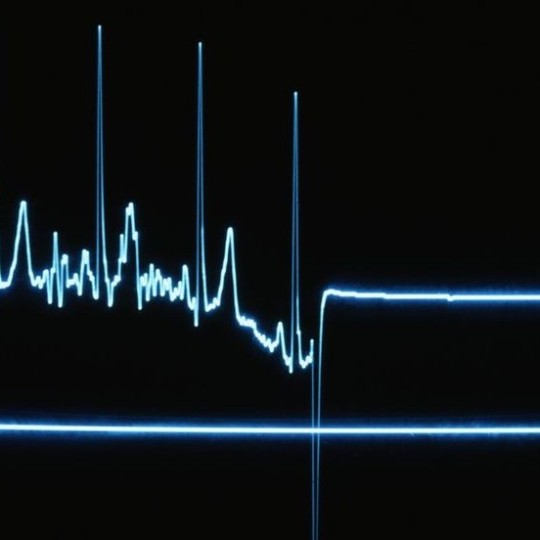

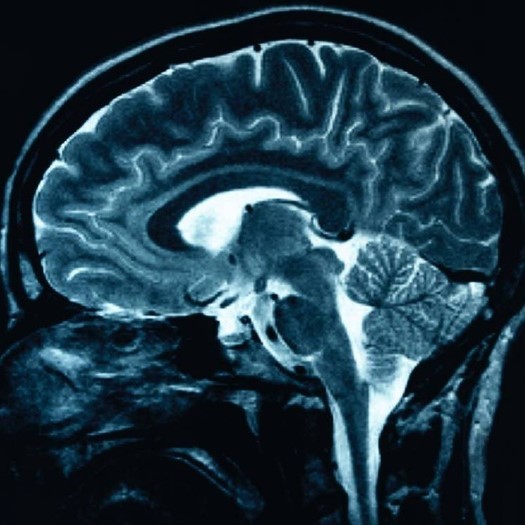
thg masterlist / inbox / part two
summary: The capitol has taken you from him, but he won't let them keep you.tags / content warnings: violence, bullet wounds, major character injury, blood, needles, angst, fluff, no use of y/n word count: 4.0k
requested by anon: omg I love your writing and I have an unhealthy addiction to reading angst so could you please write something about the reader being with peeta and Johanna when they where taken by the capital and her being with finnick and recovering while she’s in district 13? 🫶🫶
a/n: The way I smiled when I saw this request I swear. This one has been in the works for a little while and I thought it fit perfectly. It is angst you ask for and it is angst you shall get. I'm considering writing a part two but I'm not sure how to yet. My bad habit of not proofreading happened again and with this one especially it was way too long so if I made any major errors pls do let me know.

The Capitol.
You are currently in the Capitol.
At least that’s where you think you are. You remember being in the arena, you remember running towards the general direction you last saw Finnick, remembering the marks you had gone by in case you had to take a different route. You remember seeing Finnick's face through the plantation, you’d be able to recall those features anywhere. You remember something hitting you from behind and falling to the ground, too caught up in catching up with him to check your surroundings. You remember crying out in pain, hoping he’d hear you. But the next thing you remember is the vision of him slowly going out of focus and losing consciousness not long after.
At least that's what you think happened.
At least you can still remember, that’s worth something right? You remember your past, and you remember the reaping that led to the arena. The flood of relief that went over you as you finally found your way back to him. You don’t know what happened to Finnick, he was there too after all, but you had needed to split up early. Maybe he had been caught off guard too. Maybe he escaped. Maybe they never even found him. Maybe with him being the idiot he could be, he was probably already on his way here, looking for you. Just like you would have done for him, and he would have called you an idiot then too.
You would get out of here one way or another, that much you knew, but you needed to remember more, you needed to remember the last look on his face, you hadn't had much time to take it in, but you remembered the furrow of his eyebrows, the same expression he always had when he was trying to concentrate, you needed to remember that.
You knew that once you did get out of here, Finnick would be furious, telling you that you had been reckless, that you shouldn't have let your guard down, shortly after telling you how worried he had been. And it would feel like coming home.
Your mind becomes hazier, and it is harder to remember. You feel your head throbbing, and you move your hand towards it until you feel it can move no further. You open your eyes slowly, trying to adjust to the bright light that covers the room. You can't see much, can't move your head much.
You remember the rendezvous point you had talked about. You remember the quick “don't get yourself in trouble” and the kiss he gave you right before you parted ways.
You remember the layers of plants and trees you moved through, seeing some of them cut down, letting you know someone else had been there
But you know there is more, more that you missed. The stomped-out ashes that you ran past, you know you should have paid closer attention. But you can’t remember
You need to remember what happened. How you got here. Who got you here. If you really are in the capitol. But your mind doesn't want to cooperate anymore. The room is getting darker and darker, even though the lamp above your head is still dutifully buzzing

You wake up, you still remember where you are, or at least where you think you are. You still remember yesterday, was it yesterday? Why couldn't they just hang a clock in here?
You look up, and you see a device set up, not too far from where you're lying down. You try to get a better look but the light above your head is too blinding to see anything else in the room. You don’t fully understand it until a man walks into the room with a video camera in his hand and an expression on his face that seems just a tad too happy.
The camera starts blinking a red light, signalling you that it has started recording. The man has a sort of laser that he presses into your lower stomach, it doesn't breach your skin but it hurts like it does. It takes all your energy not to show him the satisfaction of it.
“Come on now darling, work with me a little.” He says after a while, changing the setting on the laser. The last bit of your energy is gone, and you can't keep the screaming from escaping any longer. It echoes off the white walls around you and when you hear yourself, you barely even recognize it. He seems satisfied with the result and finally puts the laser down. You look down but don't see any burn marks or indication of what has just happened.
He comes closer and you can see he is holding a sort of crowbar, but you're not sure why. You remember how you always left one outside your window in the districts, in case the wind had shut it and you needed to sneak back in. You remember Finnick finding out, giving you a serious, disappointed look, but not telling you to stop.
Before you can think of anything else, the bar hits you with full force, right above the spot he was previously focused on. You didn't expect it, and it knocks the little breath you had left out of your lungs. He hits again, not in the same spot, but close, he is very clearly aiming for your ribs. The switching between high-tech and old-school weapons has you puzzled, but you can't deny the result either of them has.
After a while, he stops, and with the added difficulty and pain that now comes with breathing, you are more than certain he just bruised a few of your ribs.
He walks back, taking the camera in his hands. He aims it at your face and you close your eyes to try and collect yourself as much as your current state allows. Your hair is a tangled mess and you are rather certain there is blood smushed over your face from the cuts you got in the arena.
“Smile for the camera sweetheart.” He asks, even though it sounds more like an order than a request. You open your eyes to look at him. He is so close, and you want to drive your thumbs so far into his eye sockets you can feel the front lobe of his brain, if he even has one. But you can't do anything, no matter how much you want to fight, you are powerless here. You close your eyes again, trying to block everything out and remember.
You remember District Four, the way the light summer breeze would always carry the smell of the beach to your house, no matter how hard you had it, it always livened you up. You remember the first time Finnick tried to teach you how to surf, being so gentle with you no matter how many times you fell off it, always there to catch you again. You remember your last birthday, well, the day after, but you couldn't even complain about that. He had picked you up from your place and brought you to one of the lakes with him. He told you the story of one of his birthdays when he was younger, along with all the embarrassing details, but of course, it only endeared him further to you. You told him about the presents you got and all the people who came to wish you a happy birthday. You told him everything you could remember. You remember last seeing his face, maybe it was the last time you will have ever seen it. No. No, you remember it, but you’ll see it again, you have to.
“I’ll make sure your loverboy gets to see this, wherever he is, wouldn't want him to miss out on the fun.”
Finn. Finnick. You remember Finnick. You remember when you returned from your first games. The black eye and broken arm you came home with. You remember how he lost it when they didn't immediately treat you for it. He would now either throw a fit over it for everyone to see or be so stoic in his thoughts even Johanna would get a little concerned.
You see the man standing up, walking to the table, and picking up something new. A syringe, it's a syringe. He walks over and pushes it into your upper arm, and before you know it, your vision turns black again.

You remember waking up to gunshots, and you panic. But after a few seconds, you figure out they’re not near you. There is, however, someone in the room with you, it's the same man again. He looks a little panicked, but you can’t figure out why just yet. The gunshots are becoming louder, and closer, and he seems more startled now. His arms drop to his sides from what he was doing and his eyes widen. Screams are echoing and you can hear footsteps.
You remember that pattern of paddling feet, and you recognize the second pair of steps too, but you can't remember much else.
The man gets closer to you, placing his hand over your mouth, pulling out a gun with his free hand and telling you to stay quiet. You never understood why people say that, it means he has something to lose, and you want to scream out, but your voice doesn't remember how to.
It's even closer now, right outside the door, and you can hear talking. You remember his voice. How he always asked you so sweetly how your day had been, the way he whispered sweet nothings in your ear as you fell asleep.
You hear the door jiggle, and it makes you want to scream out for him, but your sore throat won't let you. For a moment you think that is it, you had your chance, and you let it go by. He’ll move along the hallway to the other doors and leave you here. But then you hear another gunshot, and they must have shot the lock, because right after you hear someone running into the door with an echoing thump as it breaks open.
The man next to you had his gun pointed at the door, and he changes it to point at you instead.
You were right, by the gods you had never been so thankful to have been right. Finnick walks in, and you can see the colour drain from his face as he does so.
The man standing next to you is starting to get nervous, you can see the sweat starting to drip down his face. He must realize he has been matched, because there are more people by Finnicks side. But the man still has his gun pointed at you, and this isn't over just yet.
You can't keep your eyes open anymore, and when you close them, you remember. You remember your first kiss with Finnick, how nervous he had been at the time. He had been shaking a little and told you he was embarrassed by how much you got to him, but it only endeared him further to you. He yells at the man to let go of the gun, he sounds nervous again.
But he doesn't let go, he decides to shoot.
You hear the bullet leaving the gun, and for a single moment, you think it's over. The last thing you’ll ever see is Finnick, but he’s not himself. He’s upset, and even though you know he’s not upset with you, it still tugs at you. Except when you feel the bullet piercing through your skin, that's exactly what you realise. You can still feel it. He didn't shoot you right in the heart, he didn't shoot towards your head, he shot you in the abdomen. You’re not sure why, not sure why he didn't kill you, but you will never know, because not even a second passes as you hear a second gunshot, and he falls to the floor.
You can't seem to remember how to open your eyes, but you can hear Finnick rushing over and right as he reaches you, you fall. You fall into his arms and the memory of it gives you hope. Something comes in contact with your stomach, and the agony of it makes you want to scream out. You can feel him lifting you, and the shift of your body makes the bullet move, making you want to scream again. And if you remembered how to, you would have.
You know he’s talking to someone, but it sounds more like buzzing to you. You can only make out certain parts of the conversation, something about needing to leave, something about infections, and something about an aircraft.
You can hear him talking again, and this time it’s directed at you. There’s a strain in his voice, and it sounds like he’s crying. It makes you want to comfort him, but you don’t remember how to.
“Please darling, just open your eyes."
But you’re afraid, youre afraid that if you open them, everything will turn out to be nothing but a dream, and he won’t be here anymore. But even if this is a dream, you need to see him. Even if it will turn into a haunted memory, you need to see his eyes looking back at you. It takes you some effort, but you open your eyes, looking at him. You can see tears flooding his face, you can see his lips moving, silent pleas coming from them for you to stay awake. He’s telling you how good of a job you’re doing, he's telling you to hold on. He promises that he won’t let anything bad happen to you ever again and that he won’t let go of you anymore.
You remember how he cried when you were reaped for the 75th games, and how you had told him everything would be okay, how you had comforted him, but you don't have the energy to comfort him this time. You remember hearing his sobbing, his shaking voice when you close your eyes again, not being able to keep them open any longer, even if you wanted to.

You wake up again, and for a moment you think it had indeed all been a dream, that you were right back where you had started, But then you remember the bullet in your stomach. You look down and see a bandage over it, even though it’s already soaked in blood. They must have taken it out.
You try and concentrate, and you can hear Finnick talking to someone. “Just tell me, I know it’s bad but I need to know.” “Finnick, it won’t make a difference.” The person he’s talking to sounds desperate, and you remember how stubborn he could be when it came to you.
But you don’t remember more, because your head starts to feel light again and you give in to the feeling.

When you wake up again, you manage to open your eyes, and you can see someone sitting in a chair next to the bed you're in. He’s slumped over, his face half pressed into the mattress and half into your stomach, both of his hands are holding onto one of yours. It hurts a little, but you don't mind, because it reminds you, even when you look away, that he is still there. You remember the way he always softly snores, and the way he wiggles his nose when your hair falls over it.
You think you're connected to a monitor, because something is beeping in the same rhythm you can feel your heart beating, and it gives you a headache. So you close your eyes again, and once again, you give in to the feeling of sleep that looms over you.

Since you had been brought to District 13, he has barely left your side. He keeps putting cold washcloths on your forehead to try and break your fever. It won't help, and he knows it, but no one has the heart to stop him.
You haven't shown a single sign of life since they had found you. It was unsettling, the silence that filled the room, none of your usual laughter and banter there to replace it.
It’s only when Finnick's head shoots up that the others notice it as well. The steady beeping that has been imposing the silence in this room for weeks picking up its pace. The beating continues to go faster and faster, your body shaking up from the bed in almost the same rhythm. But right before anyone can do anything about it, it stops. It all seems to stop, you stop moving, and the monitor stops beating.
He starts giving you chest compressions, and someone rushes into the room holding a small bottle, they fill a syringe with the clear liquid and inject it into your arm. Within a few seconds, your heart starts beating again. But it’s only after a minute of the monitor showing him a steady heartrate that he stops his actions.

It’s dark in the room when Finnick wakes up, and if it wasn't for the soft light and the beeping of the monitor, he would've thought he was dreaming, but it seems the reality won’t let him escape. He struggles not to fall back asleep, and every few minutes he does, but every time he wakes up startled again, scared that you’ll be gone if he doesn't open his eyes every once in a while. It was easy to see the toll it had taken on him. His posture was slouched, his face less well-groomed than usual. But no one could blame him, because they could see the way he looked at you, as if you were the sun and your dimmed light turned his world dark.
He knows the chance you can hear him is small, but he feels the urge to talk to you nonetheless.
“I don't think I can hold this in any longer. I remember some studies that have shown people in comas do hear what's going on around them, but maybe it’s for the best that you don’t, because you would never say yes.”
He continues but he feels his voice choke up, and he runs a hand through your hair to calm himself down, his other hand still holding onto yours.
“We talked about it once, I still remember every single word you said. You came at me with all your logical reasons for why it would be a bad idea. But what you never understood is that when it comes to you, I'm not able to think rationally, because my love for you will overpower anything else.” He chuckles softly as he recalls the memory he’s about to tell you next.
“I remember when I opened up to you for the first time. I had always held things to myself, but you were so calm as I talked to you. I thought for sure I had screwed it up somehow then. Everyone always tells me now how happy you make me, and they're right. Ever since you came into my life there has not been a single moment when the thought of you did not bring me joy, even when we fought my memories of you could still somehow bring a smile to my face.
I remember when they showed me the video, they hadn't wanted me to see it, but you know how stubborn I can be when it comes to you. I saw you, I saw the way in which they were hurting you. And I started yelling, ironically enough in that moment, you were the only one that could have calmed me down. I remember yelling at them, fighting with them not to wait any longer, that they couldn't let you wait any longer, they had to have me sedating until they came to a conclusion."
He reaches into the pocket of his trousers, taking a small ring. It was his mother's ring, he had found it a while back and had carried it with him ever since. He had thought of moments to give it to you, but every time there was one, every time he was about to ask you, something had happened, something had interrupted him. But there was no one interrupting him this time. “I have thought about asking you this every time I see you, and I can't hold it in any longer. So when you wake up, not if you wake up, because I know you will. I know you will wake up because you have to. So when you wake up, will you marry me.” A little part of him had thought you'd wake up, that you’d answer him. Even if you said no, it would still be better than what's happening right now, because he didn't care if you'd say no, if you’d say you weren't ready, because nothing could be worse than the silence that followed him. And so he slid the ring onto your finger delicately, as if you were to disappear if he wasn't careful. He put the ring on your hand because he knew that even if it wasn't today, and it wasn't tomorrow, someday you would marry him, and he wouldn't let you slip away.

At first, he thought he was imagining it, sleep deprivation and desperation playing a trick on his mind. But then he saw it again, in the beams of morning light he could see your hand moving, as if it was trying to grasp onto something, trying to pull you back into this world. It woke him up in an instant. But it was all followed so fast, the way your eyes slowly opened, squinting at the light. Before you had even awoken for a second, he moved from where he had been right beside you in order to hug you. And he was about to get lost in the thought of your moving lips, tears falling down his eyes, about to get lost in a kiss full of built-up pain and desperation when he noticed, something was wrong. Your eyebrows were knitted together and the corners of your mouth turned down just a little. He looked at your expression, your body language, something was wrong. You looked vulnerable, you looked like you wanted to protect yourself from someone.
It was only when he looked into your eyes that he truly understood something was very wrong.
Your eyes looked as if you were in pain, but it wasn't a look of any physical pain, it looked as if something was endangering you, but he couldn't understand what it was. He slowly moved so as not to startle you and asked you “Darling, what’s wrong” And at first you didn’t respond, but when he kept looking at you, expecting him to answer you, you started to speak. “Am I supposed to remember you?”
He immediately flinched back at the statement, his shoulder sunk and his eyes dimmed. Someone told him it wasn't uncommon for brain injuries to cause short-term memory loss after a coma.
So slowly, and surely, he made it work. But it was crumbling him down every time you didn't remember the unconscious acts of affection, so foreign to you now. A quick touch on your arm as he walked towards you made you flinch slightly as if his hand had been on fire. The subtle smiles he gave you when entering a room were now met with you looking down. The way that even though you were physically here, you really weren't.
He promised himself, he vowed to himself that he would make you remember. That no matter how long it took, he would wait for you. He would wait for you to remember, make you remember. Because he had very quickly learned that he couldn’t live without you anymore.

Part 2: Trying to Forget
#finnick odair x reader#finnick odair x y/n#finnick odair x you#finnick odair angst#finnick odair fluff#finnick odair fic#finnick odair fanfic#angst#fluff#fanfic#fanfiction#fic#finnick#finnick odair#finnick x you#finnick x y/n#finnick fanfic#hunger games finnick#the hunger games finnick#thg finnick#finnick x reader#finnick imagine#finnick odair fanfiction#the hunger games fanfiction#thg series#hunger games fic#the hunger games fluff#the hunger games angst#the hunger games#hunger games
935 notes
·
View notes